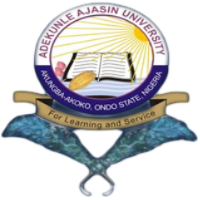Assessment of radiological hazard levels in drinkable water: a case study of sachet waters consumed in adekunle ajasin university community and its environ
Keywords:
Water, gamma spectrometry, radionuclide, activity concentrationsAbstract
Water samples, popularly known as “pure water” or “sachet water”, that are consumed in Adekunle Ajasin University, Akungba Akoko Nigeria and its environs have been collected in 40 226 232 order to determine the activity concentrations of K, Ra and Th in the samples. Measurements of radioactivity in the water samples were carried out using γ-ray spectroscopy. A total of twenty one “pure water” samples from five towns close to Adekunle Ajasin University Akungba Akoko, were collected for study. The mean total annual ingestion effective doses evaluated from the measured activity concentrations of the radionuclides in -1 these samples were found to be 48.34± 12.15 μSvy and ranged between 24.11±6.37 and -1 64.89±16.35 μSvyr . The overall annual ingestion effective dose from all measured radionuclides was below World Health Organization (WHO) recommended reference level -1 of 100μSvyr for all water samples. Thus, the water samples analyzed in this study are radiologically safe for drinking and domestic use. The result obtained in this study, has been taken as baseline for activity concentrations of natural radionuclides in drinking water samples within Akungba-Akoko Community


